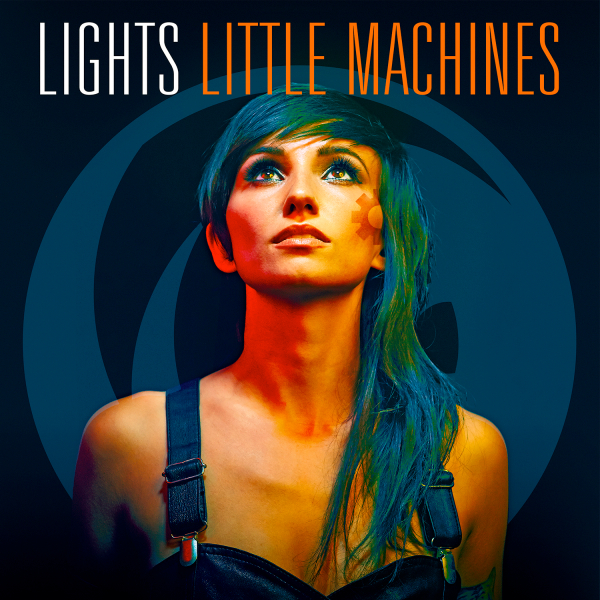
Five years ago, the electro-pop landscape looked very different: It was a time when Lady Gaga had her monster paws wrapped tight ’round the world with her brand of macabre “Bad Romance” dance-pop, and when songstresses from across the pond began pouring into American airwaves, including the hard-edged ’80’s-inspired synth sounds of La Roux and the electronic wisps of Ellie Goulding. But just north, a sugary-voiced Canadian songwriter who called herself Lights was quietly making her own ripples in her homeland.
After starting her career writing songs for the television series Instant Star, Lights (real name: Valerie Poxleitner) eventually transitioned into singer-songwriter-mode; she landed a few hits at Canadian radio, including “Drive My Soul” and “February Air,” before the release of her 2009 debut, The Listening. Two years later, she returned with a grittier sound on Siberia, a chillier, left-leaning collection that predates what would eventually become radio’s brief love affair with dubstep-infused pop. Now that dance festivals and superstar DJs have flooded the mainstream, synth-pop isn’t the chart rarity it was when Lights was still writing her debut — but with her third studio album Little Machines (due out on September 23), the songwriter stays true to her own sound while adapting to some newer noises within an increasingly overstuffed genre.
Co-helmed by longtime collaborator Thomas Salter, Drew Pearson and mixed by Mark “Spike” Stent, the singer’s third full-length outing moves away from the dub textures of her last LP and returns to the brighter sparkles of her debut, but aims higher — and further. Little Machines is the singer’s most broadly appealing record to date, offering a mixture of starry-eyed sentiments, propulsive beats and razor-sharp hooks — much in the same way that fellow Canadian songsmiths Tegan & Sara crafted their acclaimed indie-gone-pop 2013 album, Heartthrob.
Lead single “Up We Go” led the charge with an enthusiastic burst of glittering self-empowerment, marking one her most assured cuts to date: it’s an undeniably catchy kick-off, if not slightly too on the nose with today’s trends. Album opener “Portal,” by contrast, expands in the speakers as one continuous, chill-inducing whisper, confident vocals and robust production pointing to her evolution as an artist. But despite her sonic maturation, nostalgia courses through the record. Standouts like the sleek and dreamy “Speeding” and “Running With the Boys,” the album’s namesake, bounce along atop romantic, ’80’s-leaning synthesizers and licks of New Wave guitar, as she dreamily recalls days gone by. Meanwhile, the anthemic “Same Sea” packs crashing post-chorus breakdowns, while “Muscle Memory” is a chunky slab of synth-pop that stabs at the speakers not unlike something from CHVRCHES’ back catalogue.
But perhaps the most poignant is the album closer “Don’t Go Home Without Me,” a deeply romantic tribute to her partner, which underscores Lights’ hopeful state of mind: “This is the song I will sing to you when you’re old and tired / I will sing it to remind you that I’m old beside you,” she pledges. Sure, the underlying synth-pop pulsations might one day sound dated — but the song’s sweet melody, as with the many highlights on the record, feels pretty timeless.
More Must-Reads from TIME
- Donald Trump Is TIME's 2024 Person of the Year
- Why We Chose Trump as Person of the Year
- Is Intermittent Fasting Good or Bad for You?
- The 100 Must-Read Books of 2024
- The 20 Best Christmas TV Episodes
- Column: If Optimism Feels Ridiculous Now, Try Hope
- The Future of Climate Action Is Trade Policy
- Merle Bombardieri Is Helping People Make the Baby Decision
Contact us at letters@time.com